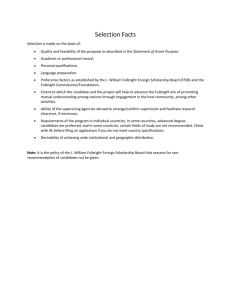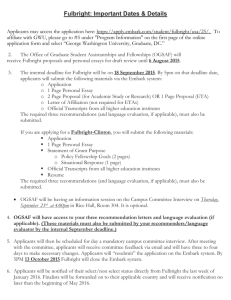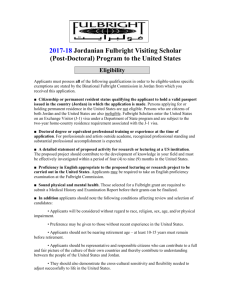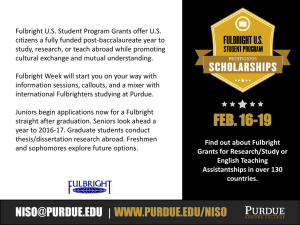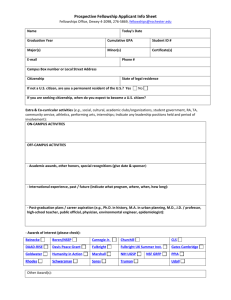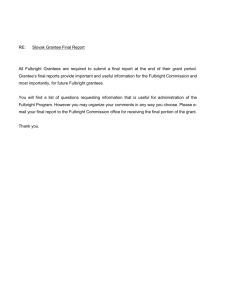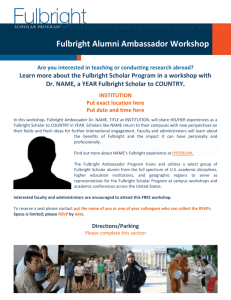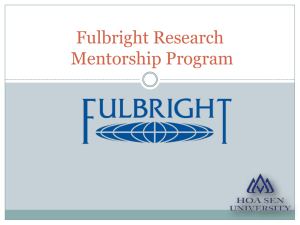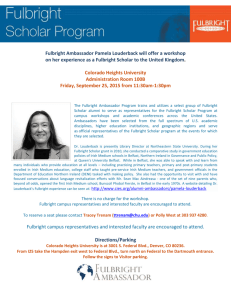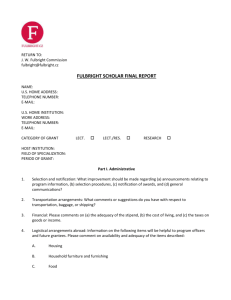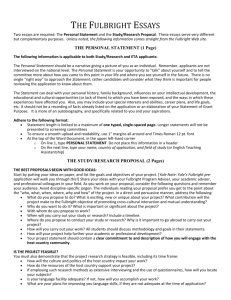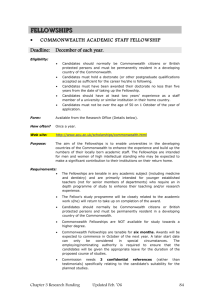The Fulbright Visiting Research Scholar Program (VRS) provides
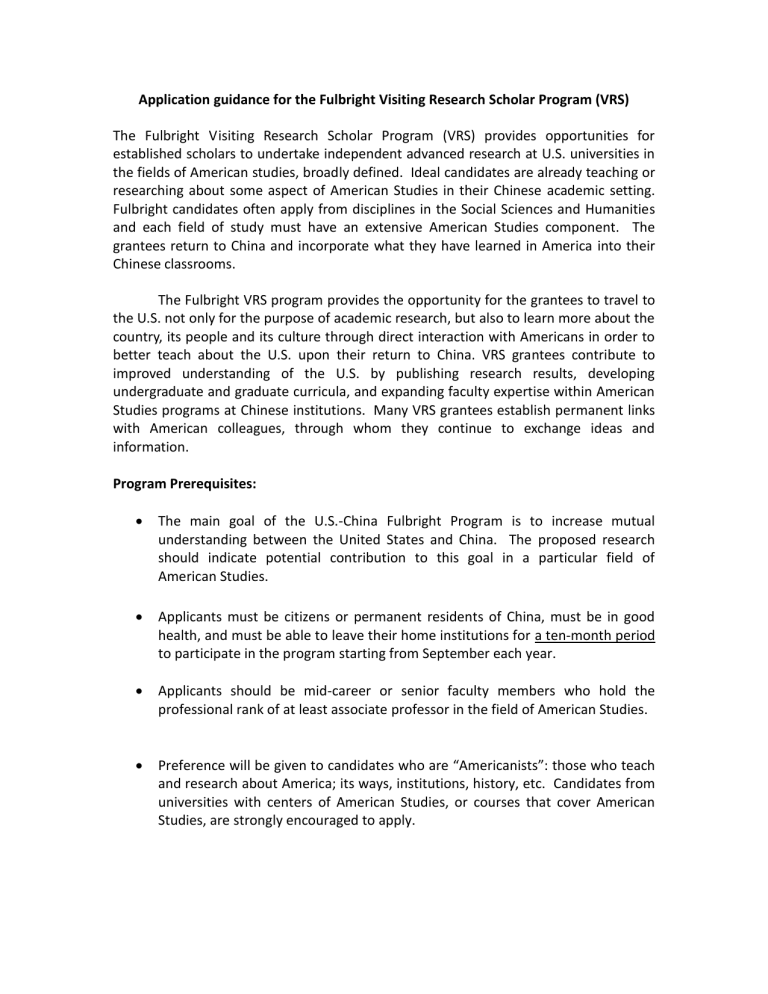
Application guidance for the Fulbright Visiting Research Scholar Program (VRS)
The Fulbright Visiting Research Scholar Program (VRS) provides opportunities for established scholars to undertake independent advanced research at U.S. universities in the fields of American studies, broadly defined. Ideal candidates are already teaching or researching about some aspect of American Studies in their Chinese academic setting.
Fulbright candidates often apply from disciplines in the Social Sciences and Humanities and each field of study must have an extensive American Studies component. The grantees return to China and incorporate what they have learned in America into their
Chinese classrooms.
The Fulbright VRS program provides the opportunity for the grantees to travel to the U.S. not only for the purpose of academic research, but also to learn more about the country, its people and its culture through direct interaction with Americans in order to better teach about the U.S. upon their return to China. VRS grantees contribute to improved understanding of the U.S. by publishing research results, developing undergraduate and graduate curricula, and expanding faculty expertise within American
Studies programs at Chinese institutions. Many VRS grantees establish permanent links with American colleagues, through whom they continue to exchange ideas and information.
Program Prerequisites:
The main goal of the U.S.-China Fulbright Program is to increase mutual understanding between the United States and China. The proposed research should indicate potential contribution to this goal in a particular field of
American Studies.
Applicants must be citizens or permanent residents of China, must be in good health, and must be able to leave their home institutions for a ten-month period to participate in the program starting from September each year.
Applicants should be mid-career or senior faculty members who hold the professional rank of at least associate professor in the field of American Studies.
Preference will be given to candidates who are “Americanists”: those who teach and research about America; its ways, institutions, history, etc. Candidates from universities with centers of American Studies, or courses that cover American
Studies, are strongly encouraged to apply.
Preference will also be given to applicants who have not previously received
Fulbright scholar grants, as well as those who have not extensively studied or worked in the USA.
Applicant research will be in the field of American Studies, writ large: Fulbright candidates apply from disciplines in the Social Sciences and Humanities, so they can do research on specific aspects of America. For example, American History,
American Government and Politics, U.S. Foreign Policy, American Literature,
American Music, Philosophy, Education, Public Administration/Public Policy,
Social Work, Public Health, Art History, Sociology and Culture, Theater, Urban planning, Journalism, Law, Environmental Studies, Information Science, etc. o It’s critical to note that applicants must demonstrate that they have a need to do research on the American system and be able to articulate ways they can return and incorporate this into their Chinese classroom setting. Applicants must also be able to articulate how this proposed research contributes to mutual understanding. o It’s critical to note that not all research in Social Science and Humanities is appropriate for a Fulbright grant, as the research must meet an
American Studies requirement. In some fields, such as American
Literature or American History, almost all research areas will by definition meet the American Studies requirement. But in other fields, such as linguistics, economics, philosophy, information science, etc., only research within these fields that is clearly related to deepening understanding of the United States will qualify. General theoretical studies or investigations of subject matter in these fields that are not specifically related to the United States will not be viewed favorably by the selection panels.
Applicants must have good English language skills (especially spoken English) for communication on a professional level in a university environment, including participation in lectures and panel discussions, and to engage in social activities with Americans, an integral part of the exchange experience.
Applicants should actively contribute to their field of proposed research through publications and/or participation in local, regional, or international fora.
Applicants must be between age 35 and 50.
